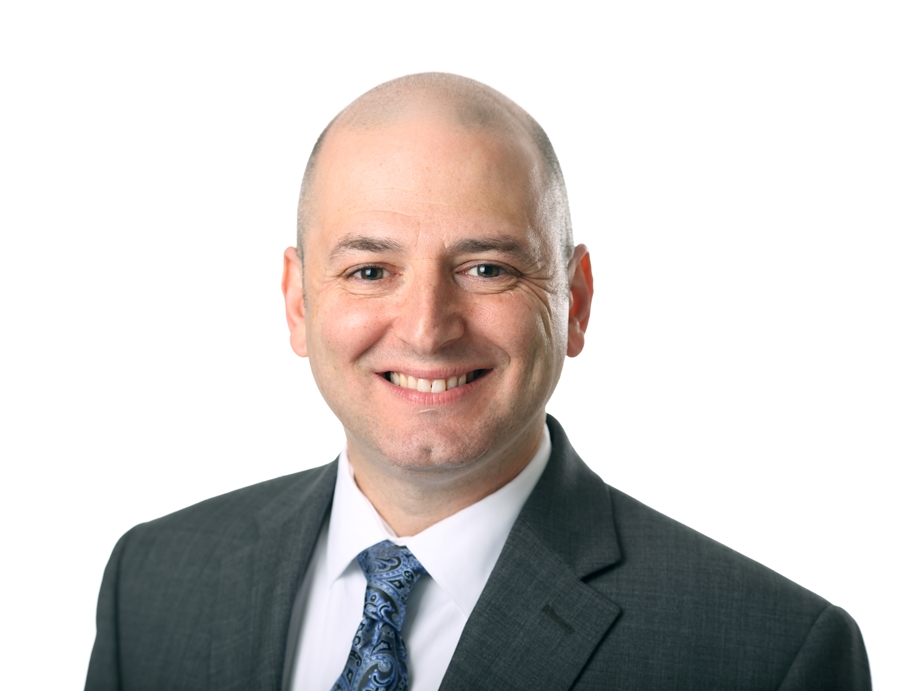Increased Social Media Use Linked to Developing Depression, Research Finds
FAYETTEVILLE, Ark. – Young adults who increased their use of social media were significantly more likely to develop depression within six months, according to a new national study authored by Dr. Brian Primack, dean of the College of Education and Health Professions and professor of public health at the University of Arkansas.
Compared with participants who used less than 120 minutes per day of social media, for example, young adults who used more than 300 minutes per day were 2.8 times as likely to become depressed within six months.
The study, which will be published online Dec. 10 and is scheduled for the February 2021 issue of the American Journal of Preventive Medicine, is the first large, national study to show a link between social media use and depression over time.
“Most prior work in this area has left us with the chicken-and-egg question,” said Primack. “We know from other large studies that depression and social media use tend to go together, but it’s been hard to figure out which came first. This new study sheds light on these questions, because high initial social media use led to increased rates of depression. However, initial depression did not lead to any change in social media use.”
In 2018, Primack and his colleagues at the University of Pittsburgh sampled more than 1,000 U.S. adults between 18 to 30. They measured depression using the validated nine-item Patient Health Questionnaire and asked participants about the amount of time they used social media on platforms like Facebook, Twitter, Reddit, Instagram, and SnapChat. Their analyses controlled for demographic factors like age, sex, race, education, income and employment, and they included survey weights so the results would reflect the greater U.S. population.
“One reason for these findings may be that social media takes up a lot of time,” said Dr. Cesar Escobar-Viera, assistant professor of psychiatry at the University of Pittsburgh and co-author on the study. “Excess time on social media may displace forming more important in-person relationships, achieving personal or professional goals, or even simply having moments of valuable reflection.”
The authors suggest that social comparison may also underlie these findings.
“Social media is often curated to emphasize positive portrayals,” said Jaime Sidani, assistant professor of medicine at the University of Pittsburgh and co-author of the study. “This can be especially difficult for young adults who are at critical junctures in life related to identity development and feel that they can’t measure up to the impossible ideals they are exposed to.”
The findings are of particular importance given that depression was recently declared to be the leading global cause of disability by the World Health Organization and accounts for more disability-adjusted life years than all other mental disorders.
“These findings are also particularly important to consider in the age of COVID-19,” Primack said. “Now that it’s harder to connect socially in person, we’re all using more technology like social media. While I think those technologies certainly can be valuable, I’d also encourage people to reflect on which tech experiences are truly useful for them and which ones leave them feeling empty.”
Additional researchers on this study are Ariel Shensa and Dr. Michael Fine, both of the University of Pittsburgh.
The research was supported by the Fine Foundation (no relation to co-author Michael Fine).
About the University of Arkansas: The University of Arkansas provides an internationally competitive education for undergraduate and graduate students in more than 200 academic programs. The university contributes new knowledge, economic development, basic and applied research, and creative activity while also providing service to academic and professional disciplines. The Carnegie Foundation classifies the University of Arkansas among fewer than 2.7 percent of universities in the U.S. that have the highest level of research activity. U.S. News & World Report ranks the University of Arkansas among its top American public research universities. Founded in 1871, the University of Arkansas comprises 10 colleges and schools and maintains a low student-to-faculty ratio that promotes personal attention and close mentoring.
Topics
Contacts
Shannon Magsam, director of communications
College of Education and Health Professions
479-575-3138,
magsam@uark.edu
Headlines
U of A Bands to Hold Three Nights of Concerts
The Symphonic Band, the Wind Symphony, the 4 O'Clock and 5 O'Clock Bands and the Wind Ensemble will perform April 21-23 at the Faulkner Performing Arts Center on the U of A campus.
Honors College to Host 'Best in Show' Dog Celebration
The campus and community are invited to celebrate our furry friends with popsicles, water and dog treats from 3-4 p.m. Thursday, April 25, in the Gearhart Courtyard.
New Parasite Affecting Canadian Partridges Named for Arkansas Poultry Scientist
A long-time colleague in Canada gave a newly found parasite the scientific name Eimeria hargisi in honor of U of A poultry science researcher Billy Hargis.
U of A School of Law Student Selected for Ms. J.D. Leadership Academy Intensive
Tristan Branstetter-Thomas, a second-year law student, was one of 30 students from across the country chosen to participate in the leadership academy at the Northwestern Pritzker School of Law in Chicago.
Needy Honored as Distinguished Alumna of University of Pittsburgh Engineering College
College of Engineering Dean Kim Needy was among seven alumni of the University of Pittsburgh Swanson School of Engineering honored in April as part of the 2024 Class of Distinguished Alumni.





